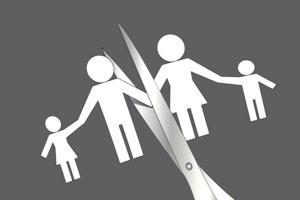Health
/ArcaMax

Ex-etiquette: Party plans
Q: My ex and I just broke up. I know, great time of year. Obviously, it was a surprise to me. So, here's what I am facing: I've been invited to a New Year's Eve party and I'm sure he'll be there with his new girlfriend. I want to go, but I already feel embarrassed and awkward, and I have no idea how to handle it. What's good ex-etiquette?
A: A ...Read more

Lori Borgman: 'Tis the season to hack, sniff and cough
If you’ve had a cold recently, you know the drill: You drag yourself to the store and prepare to spend the next four days scanning row after row of cold meds. By the time you find the meds that fit your symptoms, your cold will be gone.
All the fine-print ingredients and warnings on the boxes, bottles and origami folded sheets of paper inside...Read more

Ask Dating Coach Erika: What does it mean to date?
Note that I do not take Urban Dictionary as gospel (I’d have problems if I did!), but when it comes to defining the word “dating,” the usually off-color site does a pretty good job. One of the (many!) definitions says,“…to be in the early stages of a relationship where they go out on dates to find out what each other is like, as a ...Read more

On Gardening: Jazz Hands Variegated named the 'Heat Loving Shrub of the Year'
This coming new year will be a celebration for all loropetalum lovers. Jazz Hands Variegated will be honored as Proven Winners' "Heat Loving Shrub of the Year." This is "hands" down the most beautiful loropetalum in the marketplace. Just looking at it for a few minutes will cause you to fall madly in love with it.
Loropetalums have the common ...Read more

Jerry Zezima: The jokes are on me
I used to think, because I’m a kid at heart, and even more so at head, that I have the maturity level of a 9-year-old.
But I don’t think so anymore because a 9-year-old, who happens to be one of my grandchildren, thinks my jokes are stupid.
This was made abundantly clear when the sweet, smart and sassy girl, who is wise beyond her years, ...Read more

The Kid Whisperer: How to reinforce positive behaviors in the easiest, most effective and bizarre way possible
Dear Kid Whisperer,
I’ve always used Class Dojo to give positive behavior points, and I’ve had a class store as well to cash in their points for activities and prizes. I’ve never felt great about flooding the kids with prizes for expected behavior and it rarely works for difficult students anyway, but where do the rewards stand in the ...Read more

Artist makes stickers to cover Trump's face on National Parks passes -- and the orders are flying in
DENVER -- It took less than a week for Boulder, Colorado, artist Jenny McCarty’s new project to evolve from good-hearted “micro-activism” to a national phenomenon that’s tapped widespread anger with recent changes to the National Parks Service.
“With the design that came out for the 2026 National Parks passes, they took away people’...Read more

This NJ mall's Christmas House is nostalgic and irreverent with Harry Potter, Blockbuster, and a room full of reindeer poop
PHILADELPHIA -- The Philadelphia region is brimming with holiday attractions this season, from Center City’s extravagant affairs to the most humble of mall Santas.
But what about ones that skirt tradition and lean more into the humorous than the Yuletide?
Christmas House at the Deptford Mall in New Jersey combines nostalgia with irreverence ...Read more

Academic lectures have invaded LA bars and tickets are selling out in minutes
LOS ANGELES -- On a nippy Monday night at the Zebulon in Frogtown, a man wearing a Jason Voorhees T-shirt steps onto a purple-lighted stage and stands next to a drum set. Audience members, seated in neat rows and cradling cocktails, enthusiastically applaud.
Then they look toward a glowing projector screen. Some clutch their pens, ready to take...Read more

Faith unshaken, an Altadena congregation works to rebuild their church, and their lives
LOS ANGELES — The church members gathered around the room, holding hands. They bowed their heads and closed their eyes, waiting for words of comfort.
"We pray for the people who have lost their homes," said Pastor Connie Larson DeVaughn, standing near the center. "The marathon of it, it's harrowing. Harrowing, and stressful."
After a few ...Read more

Divorce season is almost here. Experts wish you knew more about the process
First comes love. Then comes marriage. And for around 670,000 couples per year, then comes divorce.
While you’re thinking about the holiday season, the nation’s divorce attorneys are already looking ahead to another kind of season: divorce season. Sadly, if not surprisingly, filings tend to go up in January after the holidays are done, ...Read more

Heidi Stevens: More stories of the people who shaped us -- and a reminder that our time and kindness are never wasted
A few weeks ago I wrote about the lasting influence of my mom making space and time for things she loved when I was a kid — a bit of modeling I’m so grateful for now, as I take stock of the relationships and pursuits that mean the most to me in midlife.
I also asked readers for stories of the people who shaped them. So many poured in that I...Read more
Column: The heartbreak and relief of accepting what is
For the better part of this year my brain rejected that my father could not get the care he needed at home.
He has advanced Parkinson’s, and it took a turn for the worse early this spring. My siblings and I were convinced this flare up would be treated like the others in the recent past — a short hospital stay, a stint in rehab to regain ...Read more

On Gardening: This petunia will add Cool Jazz to your garden
Several months ago, The Garden Guy told you about a new Supertunia Vista making its debut in 2026. The color is rare in the garden, especially in petunias. It is called Supertunia Vista Cool Jazz. The Vista series has become the go-to for petunias in both the landscape and containers, which means you should be able to find them at your garden ...Read more
From Marietta to millions, 'Elf on the Shelf' turns 20
ATLANTA -- Traditions around the holidays are meant to be passed down for generations: songs, ornaments, recipes. So creating a new tradition that resonates with families worldwide is nothing short of a Christmas miracle.
But that is exactly what metro Atlantans Carol Aebersold and her twin daughters Chanda Bell and Christa Pitts have pulled ...Read more

Ask Anna: How to handle when your partner and friend don't get along
Dear Anna,
I’m stuck in an uncomfortable spot between two people I care about, and I don’t know how to handle it without blowing something up.
My partner and my closest friend recently got into a pretty heated argument. It wasn’t about our relationship or someone crossing some huge moral line — it was more a clash of personalities and ...Read more

Ask Dating Coach Erika: How do I tell my family to stop asking invasive questions?
Q: My extended family always asks me nosy questions around the holiday season. Is there a way I can tell them not to? And if that doesn’t work, what should I say when they ask? I really don’t want to talk about my love life with them. Thanks!
A: I get it. Even if they have the best intentions, it feels so personal, and often invasive, to be...Read more

Ex-etiquette: Holiday stress
Q: The holidays are coming, and this is my first-year post-breakup. I'm stressed, more emotional than I have ever been, and overwhelmed and not looking forward to interacting with my children's mother. What's good ex-etiquette when you're trying to manage your own stress while co-parenting through the holidays?
A: The holidays amplify ...Read more

Altadena Girls was a fire relief success story. A year later, can it still help as LA moves on?
LOS ANGELES — The s'more bar was finally bubbling at Altadena Girls' new community space.
A few dozen teen and tween girls, all affected by the wildfires that had ripped their town apart in January, came together for a "cozy cabin" hangout night in downtown Pasadena — some making Christmas ornaments while others applied glittery makeup and ...Read more

After a brutal year, is it selfish to feel joyful this holiday season?
LOS ANGELES -- If you feel like joy is elusive this holiday season, you're not alone.
2025 has been an especially punishing year across the planet, the nation and for Los Angeles in particular. In the past 12 months, we've witnessed homes destroyed by fire, families broken up by ICE, skyrocketing anti-trans hate and massive layoffs across the ...Read more
Popular Stories
- Ask Anna: How to handle when your partner and friend don't get along
- Artist makes stickers to cover Trump's face on National Parks passes -- and the orders are flying in
- This NJ mall's Christmas House is nostalgic and irreverent with Harry Potter, Blockbuster, and a room full of reindeer poop
- Faith unshaken, an Altadena congregation works to rebuild their church, and their lives
- Academic lectures have invaded LA bars and tickets are selling out in minutes






















